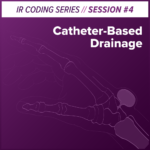Let me start with a recently published audit of a home care agency, Sunflower Home Health in Cleveland Mississippi.
During a two-year audit period, the agency submitted about 10,000 claims to the Department of Health and Human Services Office of Inspector General (HHS-OIG). The OIG audited 100 of those claims for coverage, medical necessity and billing compliance.
The result? The OIG found not one single error. Not one. I personally had never seen a perfect audit, but I asked Nina Youngstrom, who lives and breathes compliance as editor of the Report on Medicare Compliance, and she also does not recall ever seeing a perfect audit. To put it in context, the two previous OIG audits of home care agencies found error rates of 10 and 20 percent.
But in my quest to congratulate the agency leadership, I discovered the agency is no longer operating. This was the first home care agency in Mississippi and had been in business since 1966. And yet when Medicare Advantage (MA) plans are overpaid millions of dollars according to OIG audits, they go on with business as usual. It’s just not right.
Moving on, I received a call from a utilization review leader at a hospital who was facing an increasing number of denials of inpatient admissions after getting approval from the MA plan while the patient was hospitalized. She discussed the cases with the payer representative and was told the denials were not medical necessity denials but were issued by the payment integrity department.
When I asked her the name of the payer, I expected her to name one of the usual suspects. But no, this was a MA plan run by a large regional health system. What??? A health system with multiple hospitals playing the same games as the national payers? Do they play the same games when their own hospitals submit claims for admissions? This is just unacceptable behavior. And of course I advised her to follow the appeal process and then complain to CMS if she does not get those claims paid.
A little later I will be talking about the proposal in the 2026 outpatient rule proposal to eliminate the inpatient only list and the many implications of that. But the 913 page rule has a lot more in it. Of course, many will be discussing the payment rates that will be changing, and I leave that to the finance folks, but I will note that the observation payment is proposed to go up by $40.36. Now I usually advise using that extra payment for a pizza party but with inflation I don’t think that will cover enough pizza for your staff.
One other thing to note is that the Centers for Medicare & Medicaid Services (CMS) is proposing to add almost 600 surgeries to the list of procedures allowed at ambulatory surgery centers for 2026. In addition, and even scarier, is that they are going to stop assessing any surgery for suitability for being done at an ambulatory surgery center. Right now, they assess based on several criteria and exclude surgeries that “generally result in extensive blood loss,” “require major or prolonged invasion of body cavities,” “directly involve major blood vessels,” or “are generally emergent or life-threatening in nature.” But in the near future, the only criteria will be “that the beneficiary would not typically be expected to require active medical monitoring and care at midnight following the procedure.”
And I am more than a bit scared as that list for 2026 includes surgeries that are currently inpatient only such as amputation of the leg at the thigh. When things go well, it’s great. But when things don’t go well, will the surgery center have blood for a transfusion, a vascular surgeon to assist the orthopedist, a cardiologist to address the arrythmia? I certainly know a hospital would have those things. In a surgery center, all they can do is call 911.
I’ll have my amputation in a hospital, thank you.
Programming note: Listen live every Monday when Dr. Hirsch makes his Monday Rounds on Monitor Monday with Chuck Buck, 10 Eastern.
EDITOR’S NOTE:
The opinions expressed in this article are solely those of the author and do not necessarily represent the views or opinions of MedLearn Media. We provide a platform for diverse perspectives, but the content and opinions expressed herein are the author’s own. MedLearn Media does not endorse or guarantee the accuracy of the information presented. Readers are encouraged to critically evaluate the content and conduct their own research. Any actions taken based on this article are at the reader’s own discretion.













